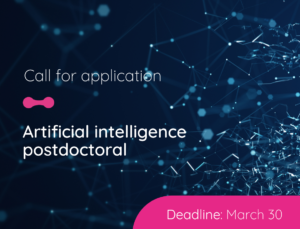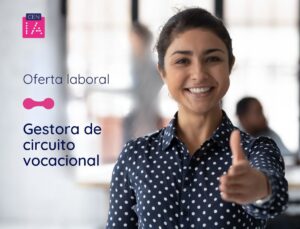
On July 18, the LatinX in AI Workshop was held in Baltimore, USA, as part of the 39th International Conference on Machine Learning (ICML). María José Escobar, associate researcher at Cenia, academic at the Electronics Department of Universidad Técnica Federico Santa María and associate researcher at the Advanced Center for Electrical and Electronic Engineering (AC3E), participated in the workshop as keynote speaker. María José is an Electronic Civil Engineer and PhD in Signal and Image Processing, being her research areas computational neuroscience, artificial and bio-inspired neurons, as well as cognitive robotics.
The conference brought together professors, graduate students, researchers and engineers working in artificial intelligence, and included a roundtable debate to discuss and reflect on the state of the art of AI research and its future projections, mainly in the several areas of machine learning, as well as tutorials and paper presentations through oral expositions and posters.
María José Escobar’s lecture focused on the relationship between artificial intelligence and neuroscience, explaining that neural networks were inspired by neurons in the human brain, where some of the properties existing in real neurons have been artificially implemented: “To date, there have been multiple initiatives to better understand the computing of our brain and the principles it considers to maximize information with an efficient use of energy. This knowledge can significantly improve the way we implement or design artificial intelligence algorithms, allowing, for example, to reduce training times and achieve outstanding performance. On the other hand, artificial intelligence tools can also be used to process the large amount of information recorded from brain activity, and thus be able to contribute to the understanding of our central nervous system,” the researcher points out

The workshop was also attended by Cenia PhD student Alain Raymond, who presented the paper entitled “A study on the predictability of sample learning consistency”, carried out together with researchers Julio Hurtado and Alvaro Soto, director at Cenia. “This work helps to understand a bit about what AI models consider difficult to learn versus what we as humans consider difficult. This is not always obvious, as we tend to humanize these models, but they look at substantially different things than we do.” For Alain Raymond, participating in this meeting represents a great opportunity to share his work with other colleagues and receive their feedback directly: “Meetings like this one also allow you to connect with other researchers and make contacts with companies interested in the field, an experience that is not usually available in virtual meetings”.
The LatinX in AI (LXAI) organization is responsible for linking communities, academia, industry and different political sectors that are dedicated to fostering initiatives to promote innovation in artificial intelligence, in addition to empowering and making resources available to people representing Latin America and globally.







